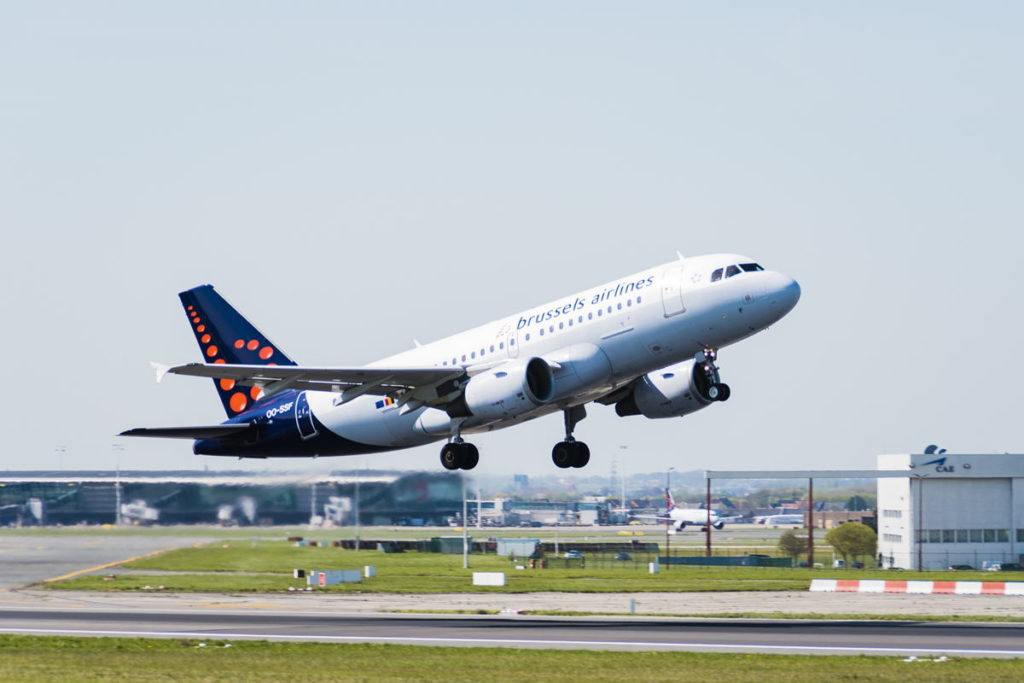The federal government has decided to add a "boarding tax" to short-haul flights to combat the pollution they cause, but so far, it is unclear what the exact impact of the tax will be on airlines and passengers.
As part of the budget agreement, it was announced that people booking flights within a 500-kilometre radius will soon have to pay a tax on their ticket, however, Belgian airlines have not yet received any official communication regarding the implementation of this measure, Brussels' Airlines spokesperson Maaike Andries told The Brussels Times.
"So far, it remains unclear to us what the impact will be, how and when this will be implemented or who will cover these costs. It seems that the government doesn't know either and that the modalities still need to be worked out," she said.
When asked about the impact it would have, the Belgian aviation umbrella organisation BATA also stated that it had received no official communication, but argued that, although the aviation industry wants to minimise its impact on the climate, these measures should be taken on a wider scale.
"Aviation is an international activity and therefore requires a global approach. On a European level, it participates in the ETS (Emission Trading System) and at the global level through the CORSIA (Carbon Offset and Reduction Scheme for International Aviation) to limit the impact," a BATA spokesperson told The Brussels Times.
Related News
- EU provides free train travels for young people
- 20 airports account for 27% of greenhouse gas emissions from global air transport
- Belgium balances the budget
He added that a significant part of its CO² emissions are compensated in this way, stressing that taxes do not have the same positive effect.
"Such revenues disappear into the big pot of tax revenues and the percentage of them that is used to combat air pollution and climate change is unknown," he said.
Although the exact amount of the tax has not yet been confirmed, a fee of €5 to 7 is being considered, a government source told De Morgen, adding that it is likely that the charge will be collected directly by the airline companies, which, in turn, will add this to the ticket price.
Transfer passengers most affected
Included in the destinations that would be affected by this added tax are London, Paris and Amsterdam, as well as Hamburg and Zurich. The tax would be added to tickets to six Brussels Airlines destinations within this radius.
"However, those flights are mainly booked by passengers on transfer connections as part of our hub model, as Brussels Airlines is a key connection point in the flight hub model. This mainly includes people travelling to Brussels to connect to long-haul flights to Africa, for example," Andries said.
Although this tax also exists in France and the Netherlands, Andries explained that here, it excludes transfer passengers.
BAFA's spokesperson explained that by putting larger taxes on air travel in just one country, the airlines based in that country "are put at a severe disadvantage compared to their competitors from other countries."
"In principle, we are not against this added tax, but the proposal needs to include the fact that they will not be affected. Otherwise, those people will choose other airlines, putting us at a competitive disadvantage, which will have a negative impact on the Belgian economy," Andries explained.
Andries stressed that, in this case, it will badly influence Brussels Airline's hub model, without reaping any climate benefit, which is the goal of the tax.
Greener alternatives
If transfer passengers aren't excluded from this tax, both Andries and BAFA argued that the government should work on making the aviation sector more ecologically friendly.
"This can be done by investing in research and development and the development of alternative, greener forms of propulsion such as sustainable aviation fuel (SAF) and electric flying and by connecting Belgian airports to the high-speed train network," BAFA stated.
"Both Amsterdam Schiphol and Paris' Charles de Gaulle airports are connected to high-speed train networks. But these trains don't stop at Brussels Airport's train station, and we can't expect transfer passengers to take the train if there are no quick connections," Andries said.

